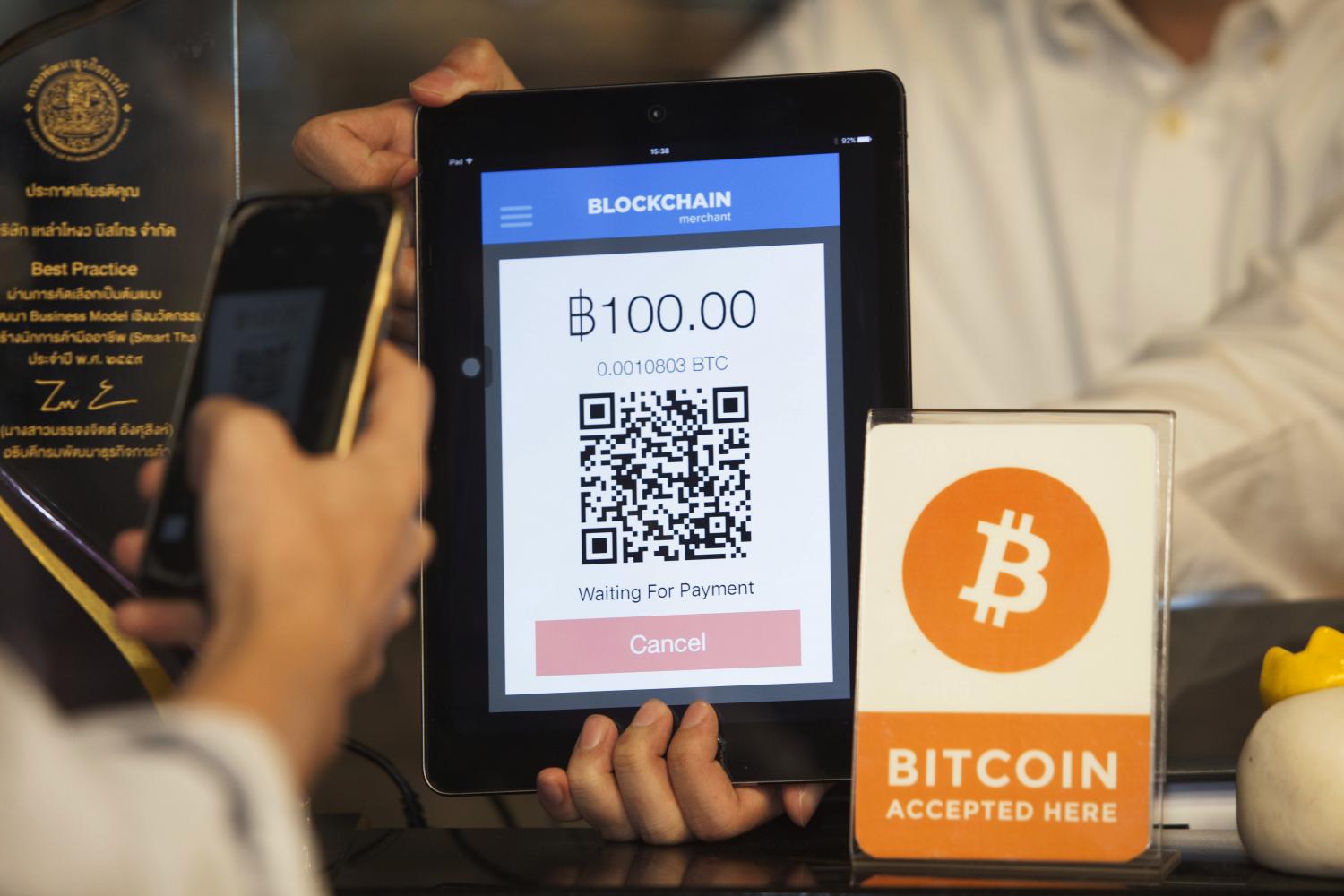A new tourism ecosystem targeting global cryptocurrency holders could provide a huge boost to national GDP if the Tourism Authority of Thailand (TAT) shifted away from traditional marketing to attract new nano entrepreneurs.

A sign announcing acceptance of bitcoin at Lim Lao Ngow, a fishball noodle shop in Siam Square. Pawat Laupaisarntaksin
Bitkub founder and chief executive Jirayut Srupsrisopa said that while Thailand's GDP was around US$500 billion, the cryptocurrency market is worth over $3 trillion.
He said the tremendous growth of this market has created wealthy individuals, and this group should be considered as potential customers for Thai tourism as financial technology, particularly nano payments, will enable them to work remotely from anywhere and get paid via transactions on blockchain technology, which incurs no fees and has lower costs than traditional finance.
Speaking at the "Transform tourism with cryptourism" seminar yesterday, Mr Jirayut said such workers are becoming nano entrepreneurs or crypto nomads who seek a liveable place which can also offer travel experiences.
"Private sectors are ready to provide digital infrastructure, but we're just waiting for the government to press the button by enacting laws, regulations or even policies to help facilitate digital asset markets. Our national GDP could grow six times if we can strengthen this market," Mr Jirayut said.
However, the growth would start from a low base as the National Economic and Social Development Council has forecast GDP growth this year at only 1.2%, while seeing growth of 3.5-4.5% in 2022.
TAT governor Yuthasak Supasorn said the digital tourism policy was intended to help cash-strapped tourism operators who have suffered from the impact of the pandemic as they struggled to access financial aid from traditional sources of finance.
He said the TAT is in the process of building a new tourism ecosystem which utilises digital technologies to allow wealthy populations, including cryptocurrency holders, to channel their money directly to tourism operators without agents or brokers.
He said that as the majority of tourism operators are small or medium-sized businesses, they mostly have limited liability, thus TAT could act as guarantor by issuing utility tokens and recruiting partner hotels to allocate their room quotas as the asset-backed token.
Mr Yuthasak said TAT is going to have further discussions with the Securities and Exchange Commission about the possibility of TAT coins, a utility token which could be used with tourism products in Thailand.
"Due to the TAT's status as a state enterprise, there are a lot of regulatory issues we need to discuss with related parties before implementation. And there are also other preventive measures against cybercrimes and customer protections we need to prepare," said Mr Yuthasak.